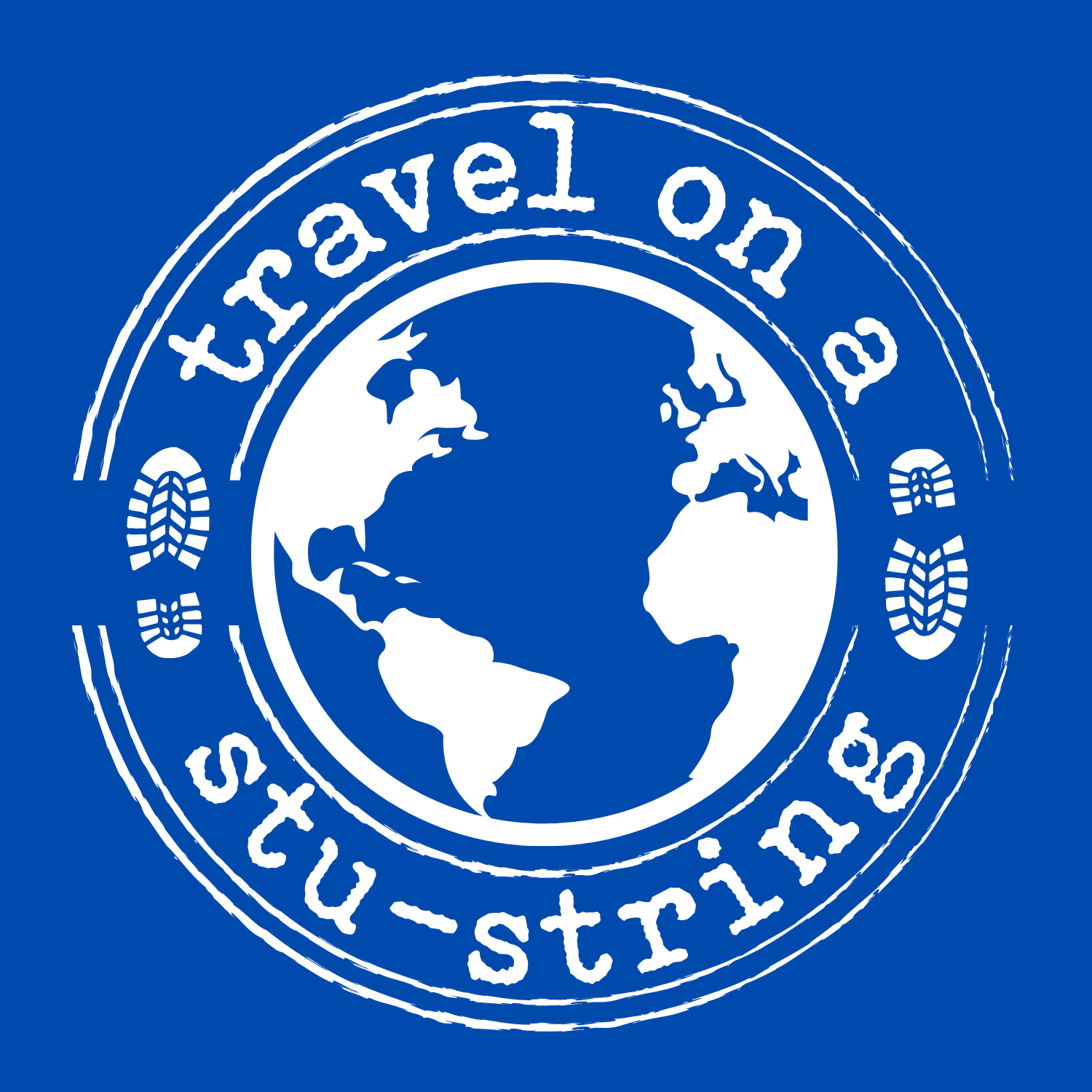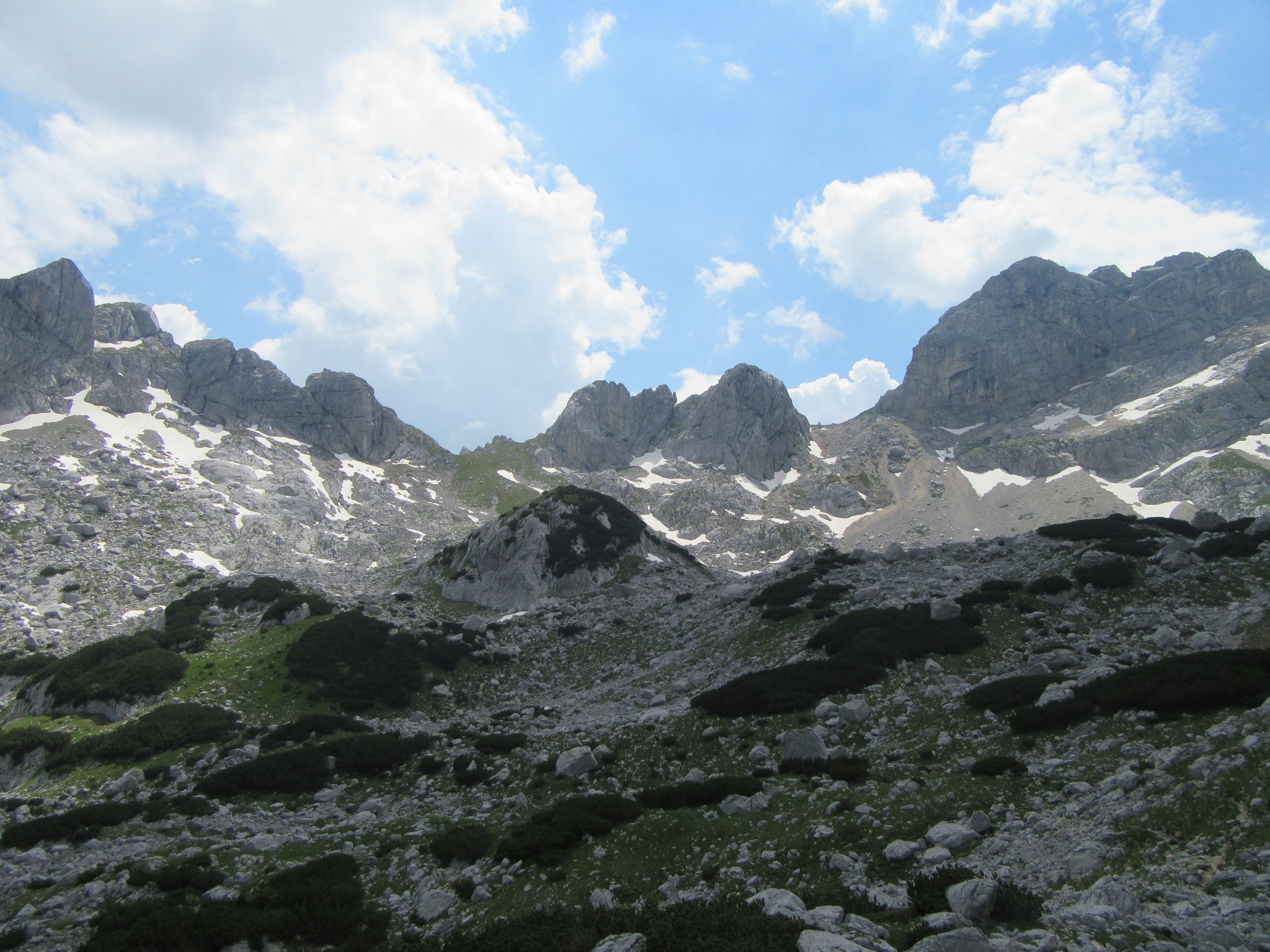Travel on a stu-string: Budget travel tips
Oh no, here we go again, another copy and paste list of budget travel tips, right? Wrong. Sure, some of these tips are found on those other lists that clog the internet, but there are some unique recommendations to be found here. Read on, and find out how to travel on a stu-string!
Join a Free* Walking Tour
Most major cities have one or more Free* Walking Tours. In smaller cities, these tours cover most of the major sights, while in large cities they may focus on a district or a few key attractions. It is rare that you need to book, though some tours may not go ahead without minimum numbers. Free* Walking Tours cater to people of all abilities and are a great way to get your bearings in a new city and meet other travellers. They also last no more than a few hours, so if you get bored or tired, you can leave anytime.
*It is common practice to tip, though not compulsory, and if you really, really don’t want to pay, then you can just walk away and vanish into the crowd.
Embrace shoulder seasons
Let’s be honest, Europe in summer is unbearable. In fact, anywhere during peak tourist season is agonising. It is overcrowded, expensive, hot (more so now because of climate change), and there is never enough accommodation. Moreover, Catalans, Venetians, and Parisians are becoming increasingly hostile to the swarms of tourists trampling through their cities. Travelling in shoulder seasons, anywhere in the world, means fewer crowds, shorter queues, friendlier weather, and often, more bargaining power.
If shoulder season isn’t cheap enough for you, try travelling in the depths of winter. Nepal’s Annapurna is near deserted during January, as temperatures dip below -20°C, while New Zealand offers amazing winter hiking, and in Europe, crowds are thinner.
Hiking in Annapurna, Nepal
Discover local attractions
Discovering local attractions is a must when travelling in a new city. Street festivals, markets, sporting events, and art exhibitions offer a great insight into the local culture. Many of these can be free, or affordable on a stu-string budget.
In Santiago de Cuba, my visit coincided with a monthly street festival, showcasing Cuban musicians, food stalls, and free dancing lessons. In York, there is a choir that performs daily and is free to attend. Meanwhile, in Dublin, watching Gaelic football and hurling at Croke Park is a fantastic way to spend an afternoon, and when I was in Belgrade, I stumbled across a World Cup qualification match between Serbia and Wales.
Serbian fans congratulating the Welsh on scoring first, Belgrade
If you’re feeling adventurous, you may want to attend protests or marches. I have attended protests in Egypt, Morocco, and Sri Lanka, watched a military parade in Burundi, and a Rastafarian church gathering in Jamaica. While these events are not for everybody, they do present a unique opportunity to meet and interact with local people.
Connect with nature
‘I took a walk in the woods and came out taller than the trees,’ wrote the American transcendentalist Henry David Thoreau. A walk in nature is not only good for your soul, but also free. You don’t have to go climbing a mountain (though I would recommend you do), you can simply amble along a beach, stroll in a park, or visit a nature reserve. Often, the natural attractions of countries are more memorable and rewarding than the checklist sights.
Durmitor National Park, Montenegro
Couchsurfing
I have been couchsurfing since 2006 and recommend it as a fantastic way to travel. I have met some great people when surfing and hosting, and inevitably, a few odd characters. Unfortunately, the site now has a subscription charge, though it is still affordable, even on a stu-string budget, and it will save you money in the long run.
If you are going to use couchsurfing, there are a few key points to remember. First, couchsurfing is not ‘free accommodation,’ and you’ll likely find yourself with a negative reference or experience if this is your attitude. Also, if you have never hosted anyone, then it may be hard to find a host when travelling, couchsurfing is reciprocal. Second, read the profiles of potential hosts carefully. Nobody likes receiving cut and paste messages, so ask yourself why you are a good match for that host and say so when messaging them.
Finally, check references. This is where you filter for weirdos, sleazebags, and nudists. It is not uncommon to find a potentially good host only to discover that his (yes, HIS) references are all from young, attractive women. If that’s cool with you, then go for it, but beware of any expectations that your host may have.
Hitchhike
Hitchhiking is something that every traveller should try once in their life. It is not as common, or as safe as it once was, though if you like your travel with an element of adventure, and have the time, then hitchhiking is the way to go.
I have hitchhiked in Romania, Bulgaria, Azerbaijan, Morocco, Serbia, Rwanda, Bosnia & Herzegovina, Tanzania, and many more countries. On several occasions, I have been fed, either at restaurants or people’s homes, while other drivers have given me cash, bought me train tickets, or were satisfied with meeting someone from far away. Only once, travelling from Sarajevo to Mostar, was I troubled when a driver and his passenger robbed me with a pair of rusty screwdrivers, however that is a story for another time.
Eat wise
Discovering new food is one of the best parts of travelling, however, not every meal needs to be insta-worthy, and to be honest, how many more pictures of everyone’s meals do we need?
Shopping at local markets or supermarkets is far cheaper than eating out for every meal, while street food options in Asia and Africa are fresh, delicious, and always cheap. One of the best meals I have ever had was an Aloo Gobi from a street vendor in Kerala. While it is nice to splurge every now and then, dining out every day will quickly eat away at your funds.
Cauliflower Aloo Gobi, Kerala
Also, if you are staying at a backpackers’ lodge, have a look for the leftovers box. Often you will find half a packet of pasta, noodles, or bread, and you can create a delicious and filling meal without spending much at all.
Walk, or take public transport
‘My feet is my only carriage,’ sang Bob Marley, and indeed, your feet are your best carriage when travelling. Whether you’re exploring a city, strolling along a coastline, or hiking in the mountains, walking is always the best (and cheapest) method of travel. After walking, public transport is the next best option. In some cities, public transport is free, while in others it is free*. It may not be as comfortable and convenient as ride shares or taxis, but there’s nothing quite like discovering a chicken under your seat in Laos, being handed someone’s baby to mind in Tanzania, or meeting the King of America on the New York Subway!
*I’m sure you know what I mean.
Download the Atlas Obscura app*
Atlas Obscura is one of my favourite travel apps, a compilation of the most unusual attractions around the world. In London, I spent a day walking through the city, with a list of odd statues, hidden gardens, and haunted sites. The app covers almost every country on earth, and travellers can submit their own sites for inclusion. Making your way through a city with an Atlas Obscura list is a great way to spend a day.
*Atlas Obscura does not sponsor me, though I am open to offers if they read this.
Skip on travel insurance
Travel insurance is often seen as a necessary evil, and the more I have travelled, the less I have been able to justify buying it. The first time I needed it, after being robbed in Guinea, the claims process was so torturous it was hardly worth the effort – and this was from a supposed travel insurance specialist! I will purchase travel insurance for solo hiking trips, and it did help me when I was unwell in Peru (on a drip two days before starting the Inca Trail), though it is not a must have.
Sleep outdoors
What do you mean, like a homeless person? Well, not quite, but close. After a couple of sleepless nights in Kraków backpacker hostels (at the height of summer), I decided to embrace the outdoors. When I arrived in the mountain town of Zakopane, I found a grassy field on the edge of town and curled up in my sleeping bag for the next two nights. The following year, when travelling in Oman, I also rolled out a mat under the stars, dozing off to the sounds of waves crashing on the shore.
There are obviously many reasons not to do this, though if you’re game, the rewards of a good night’s sleep under a blanket of stars are well worth it.
Camping at Wadi Ghul, Oman
Travel overnight
Accommodation is one of the toughest expenses to avoid when travelling unless you’re couchsurfing or sleeping outside. The next best option is travelling overnight. It may not be all that comfortable – I remember an overnight bus in Vietnam that stopped every two to three hours, blasted the air conditioning, and showed movies until well after midnight, and then there was a train in Cuba where the seats did not recline. So, you may need an extra coffee after an overnight bus or train, but if you don’t want to ‘waste a day travelling,’ and have a stu-string budget, then overnight travel is the way to go.
So, there you have it, folks. I wish you good luck on your hitchhiking, protesting, sleeping outdoors adventures, and I’ll see you out in the world somewhere!






